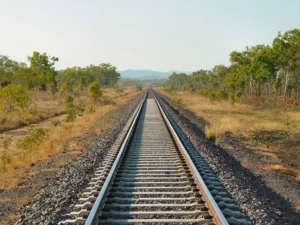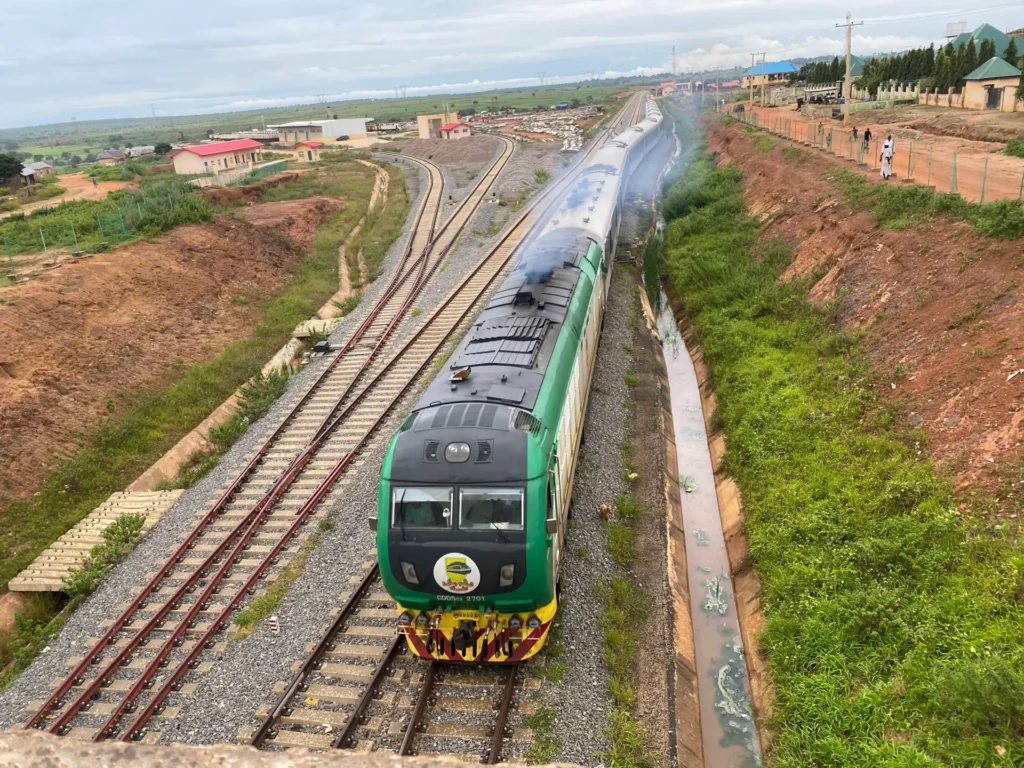The Nigeria Railway Corporation (NRC) recorded a significant decline in revenue from passenger services in the fourth quarter of 2022, generating only ₦1.15 billion compared to ₦1.91 billion during the same period in 2021. This represents a steep 39.54% drop, highlighting the challenges faced by the country’s rail transport sector amid security threats and service suspensions.
The figures were released on Tuesday by the National Bureau of Statistics (NBS) in its official report titled Rail Transportation Data for Q3 and Q4 2022. The report provides a comprehensive breakdown of earnings and operational performance within Nigeria’s railway system for the latter half of 2022.
Passenger Earnings Plunge Following Operational Disruptions
The report’s Q4 data shows that revenue from passengers fell drastically as a result of sustained disruptions in train services across major routes. These disruptions stemmed from repeated incidents of insecurity, including the March 2022 Kaduna train attack, which shook public confidence in rail travel and led to prolonged suspension of services.
Furthermore, incidents of rail derailments and infrastructure damage worsened the situation, leading to lower ridership and, consequently, reduced income.
NBS also disclosed that during the third quarter of 2022, NRC earned ₦715.09 million from passenger traffic—a dramatic fall from the ₦1.81 billion generated during the same period in 2021. This downward trend underscores the lasting impact of insecurity and inadequate maintenance on Nigeria’s rail operations.

Freight Services and Other Revenue Streams Show Promise
In contrast to the slump in passenger earnings, the NRC saw substantial growth in revenue from freight services and other ancillary income sources during the final quarter of 2022.
According to the NBS:
-
Freight transport earnings rose by 63.56%, from ₦96.13 million in Q4 2021 to ₦157.23 million in Q4 2022.
-
Other income — which includes earnings from station services, leases, and miscellaneous activities — skyrocketed to ₦382.17 million, a massive leap from just ₦11.19 million recorded in Q4 2021.
These increases suggest that while passenger operations continue to falter, Nigeria’s rail freight sector is gaining some traction, possibly due to increasing demand for logistics alternatives amid high road transport costs and fuel subsidy reforms.
Security Concerns and Derailments Cripple Passenger Confidence
The NRC’s struggle with low ridership can be traced to a string of high-profile security lapses, most notably the March 2022 Abuja–Kaduna train attack in which several passengers were kidnapped and lives were lost. The aftermath of this tragedy led to the temporary suspension of rail operations along that critical corridor, significantly affecting passenger trust and revenue.
Derailments, mechanical failures, and vandalism also compounded the sector’s problems throughout the year, with multiple reports of trains stalling or going off-track due to poorly maintained infrastructure and inadequate safety measures.
These systemic issues have raised questions about the long-term sustainability of Nigeria’s railway ambitions, especially as the government has invested billions of naira into modernizing the network with Chinese-backed loans and infrastructure projects.
Government’s Investment Yet to Deliver Full Returns
The rail sector has been a focal point of Nigeria’s infrastructure development agenda in recent years. Key projects include:
-
The Lagos-Ibadan standard gauge line, inaugurated in 2021.
-
The ongoing Abuja–Kaduna–Kano rail line upgrade.
-
The proposed Port Harcourt–Maiduguri line intended to revive connectivity in the eastern corridor.
Despite these investments, the returns have been mixed. The consistent decline in passenger earnings calls into question whether these capital-intensive projects are achieving their goals of easing congestion, reducing road accidents, and stimulating economic development.
The sharp rise in freight revenue in Q4 2022 may offer a glimmer of hope, but analysts warn that without improved security, better management, and sustained maintenance, the rail sector risks underperforming relative to its potential.
Outlook and Recommendations for the Rail Sector
To revive confidence and restore performance in Nigeria’s railway system, industry observers and experts have recommended the following actions:
-
Enhanced Security Measures: Deployment of surveillance technology, armed escorts, and rapid response teams to secure trains, stations, and rail corridors.
-
Maintenance and Infrastructure Upgrades: Prioritize routine track inspections, signaling upgrades, and prompt repair of damaged sections to minimize derailments and accidents.
-
Public Confidence Campaigns: NRC and the Ministry of Transportation should initiate public awareness campaigns to reassure commuters of improved safety and reliability.
-
Diversification of Revenue Streams: Leverage real estate development, cargo handling, and public-private partnerships (PPPs) to reduce dependency on passenger fares.
-
Regulatory Reforms and Accountability: Introduce oversight frameworks to monitor spending, ensure service quality, and hold the NRC accountable for lapses.
Conclusion: A Sector at a Crossroads
The latest data from the NBS paints a sobering picture of the Nigeria Railway Corporation’s financial health in late 2022. While freight and other income categories have shown resilience and growth, the core function of passenger transportation has suffered deeply due to insecurity, service suspensions, and operational setbacks.
If the federal government hopes to realize its dream of a modern, reliable, and revenue-generating rail system, it must address the core challenges stifling the sector. Strengthening safety, improving service quality, and maximizing alternative income sources will be crucial to turning the tide and ensuring that billions of naira invested in Nigeria’s railway renaissance do not go to waste.







